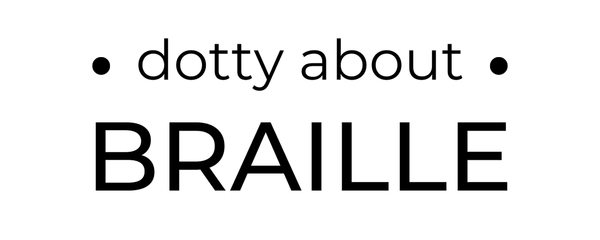As we get towards the end of Disability Pride month, let’s finish with a guest blog post from Jess, co-creator of The Wyrd Sisters, a blog owned by three sisters who all have autism, Jess shares her story on how it affects her, being diagnosed and adaptions she’d made to her life.
So let’s hand over to Jess.
What is Autism?
Autism is a neurological condition that affects the way a person's brain works. It is one of the most common childhood-onset neurodevelopmental disorders, and is sometimes referred to as Autism Spectrum Disorder (ASD) or Autism Spectrum Condition (ASC).
Despite previously being viewed as a male-only condition, anybody can be autistic, though it can come across in a variety of different ways. Some autistic people require constant help and support, whilst others live entirely independently with jobs, families and rich social lives. This is why it is called the autism spectrum.

How It Affects Me
I was formally diagnosed as autistic at the age of 25. Before this I had struggled throughout my teenage and adult years with a variety of social, sensory, executive functioning and mental health issues; I knew I was different and out-of-place, but I didn’t know why. At 23 I started working as a support assistant in my local college, helping students with autism and ADHD, and I began to notice similarities between them and myself. Between this and the mandatory autism training I was issued, the pieces quickly started falling into place.
Today I have a house, a partner, a one-year-old, and a job that allows me to work from home. Autism affects me all day every day, in both positive and negative ways. Social situations are always a gamble; sometimes I can chat to the postman like I’ve known him for years, and sometimes I can’t even open the door to him. It fluctuates day to day. I struggle with executive functioning, which is the process by which you plan and carry out tasks in your day-to-day life; for example, I was almost fined for waiting too long to register the birth of my daughter, because I could not complete the form to do it. I had it open on my computer for weeks, it would have taken me five minutes; but every time I tried to make myself think about it my brain just sort of… froze.
One of the most significant problems I encounter are sensory issues; I am hypersensitive to certain sounds, and everyday noises like chewing, scraping cutlery, roaring motorbikes and too-loud TV can make me feel physical pain.
On the bright side- the literal bright side- sensory issues aren’t necessarily always issues. Many autistic people experience sensory input far more intensely than neurotypical people, myself included, and consequently things like music, Christmas lights, and smooth, shiny textures (like polished wood or velvet) make me inexplicably happy. I have the ability to hyper focus on tasks, allowing me to work on them uninterrupted for hours without becoming bored or burnt out. This is especially true if that task has something to do with my special interests, a phenomenon whereby an autistic person fixates on a certain topic, often becoming an expert in the process (history, period fashion and pirates, in my case).
I thrive off routine and repetition, which is especially useful for my job and taking care of my daughter; watching Horrible Histories for four hours straight is my ideal afternoon. Perhaps most importantly, my autism has given me considerable appreciation and empathy for anyone who thinks and operates in a way which is ‘different’, both disabled and non-disabled.
What I’ve Done To Make My Life Easier
The most significant way in which I have accommodated myself is working from home. This allows me to control my environment almost entirely, reducing the sensory input that I struggle with. It limits my exposure to other people- which suits my social anxiety perfectly- and allows me to work to my own routine. Further changes I’ve made revolve largely around taking any preconceptions of what an adult ‘should’ be like, and throwing them out the window. I use plastic cutlery to avoid the scraping sounds I hate; I allow myself to eat safe foods in a manner that makes me comfortable (e.g. separating food on a plate); I wear what I want when I want, be it knee-length leather boots in the summer, or pyjamas at 3pm. It makes my life easier, and it shouldn’t matter to anyone else.
My late diagnosis has put a name to a problem, and enabled those around me to take steps to make my life easier. It has allowed my family and my partner to understand what my issues are and what they can do to alleviate them, such as communicating plans with me in advance, and recognising stresses that might trigger a meltdown or shutdown. Overall it has provided a reason; a reason why I am the way I am, and a reason to be a little more open and understanding. I discuss this further in my post on how my autism diagnosis has benefited me.
Thanks very much Jess for sharing your story.
Do you have a disability you’d like to talk about on the blog? Get in touch.
